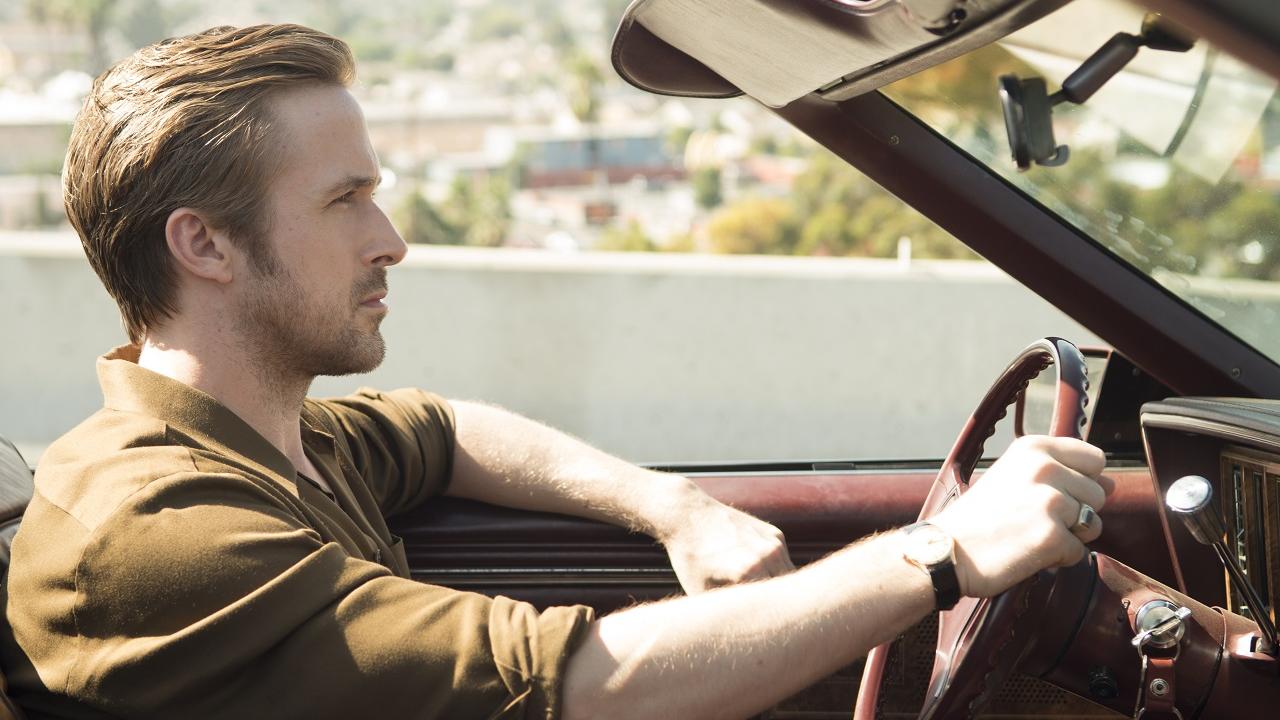Ryan Gosling's most frequent co-star isn't Emma Stone. It's Los Angeles.
Over the past 10 years, Gosling has starred in seven movies where Los Angeles not only serves as the setting, but as a character. And he's the first to admit that the sunny, messy, dynamic sprawl is one of the keys to his storytelling.
"'L.A. worships everything and values nothing.' That was something my lady said to me one day, and I thought it was so funny I asked her if I could put it in the movie," Gosling told ET's Denny Directo during the Santa Barbara International Film Festival, where he was promoting 2016's La La Land. (The lady in question, of course, is Gosling's longtime partner Eva Mendes, although this being L.A., we do love the noirish connotations of him not identifying her by name.) "She was kidding, but it's a funny thing to say... I loved when she said it, because it's funny enough to have some truth to it, you know? But it's obviously a joke, so it just seemed appropriate for the movie."
From showing the city in a dystopian future in Blade Runner 2049, in theaters on Oct. 6, to nostalgia for the bad ol' days in Gangster Squad, Gosling consistently embraces the good, the bad and the ugly of a city that some have called inherently unknowable because of its size and diversity. But that doesn't faze Gosling; he revels in it.
"I feel like there are so many facets to L.A., and I’m always discovering new ones, which is why I stay there," Gosling told the Los Angeles Times. "I feel lucky to be able to make movies that reflect that."
Blade Runner 2049 (2017)
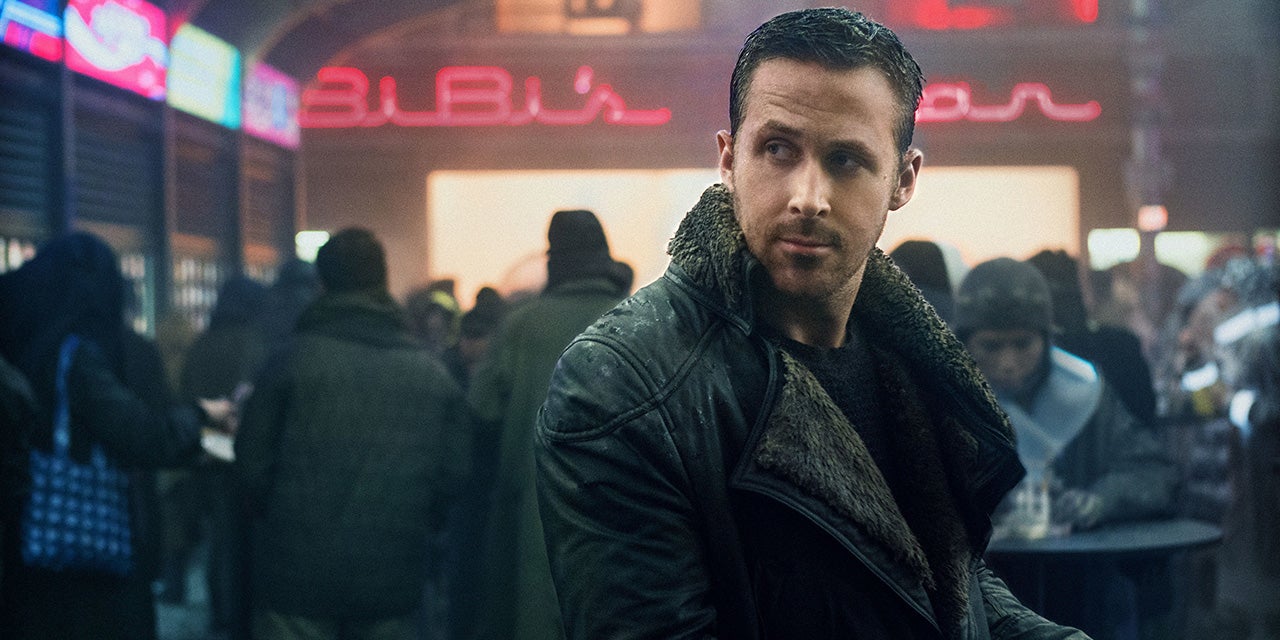
Photo: Warner Bros.
Blade Runner has become terrifyingly prescient in the 35 years since it was released, a cultural touchstone about cops and robots that's become a darkly comedic meme of life in modern L.A. (Blade Runner envisioned a 2019 Los Angeles -- two more years! We can do it, guys!)
For the follow-up, Blade Runner 2049, director Denis Villeneuve told Wired: "I started from the premise that the ecosystem has collapsed, and I started to build a new Los Angeles."
Alrighty then. But much like the original, there is an apocalyptic glam to Gosling's latest film -- even in the end times (and shot mostly in Budapest), it's recognizably Los Angeles. His character, K, is immersed in concrete canyons and a thunderous, looming Pacific Ocean, and San Diego has finally, officially, become Los Angeles's garbage dump.
La La Land (2016)
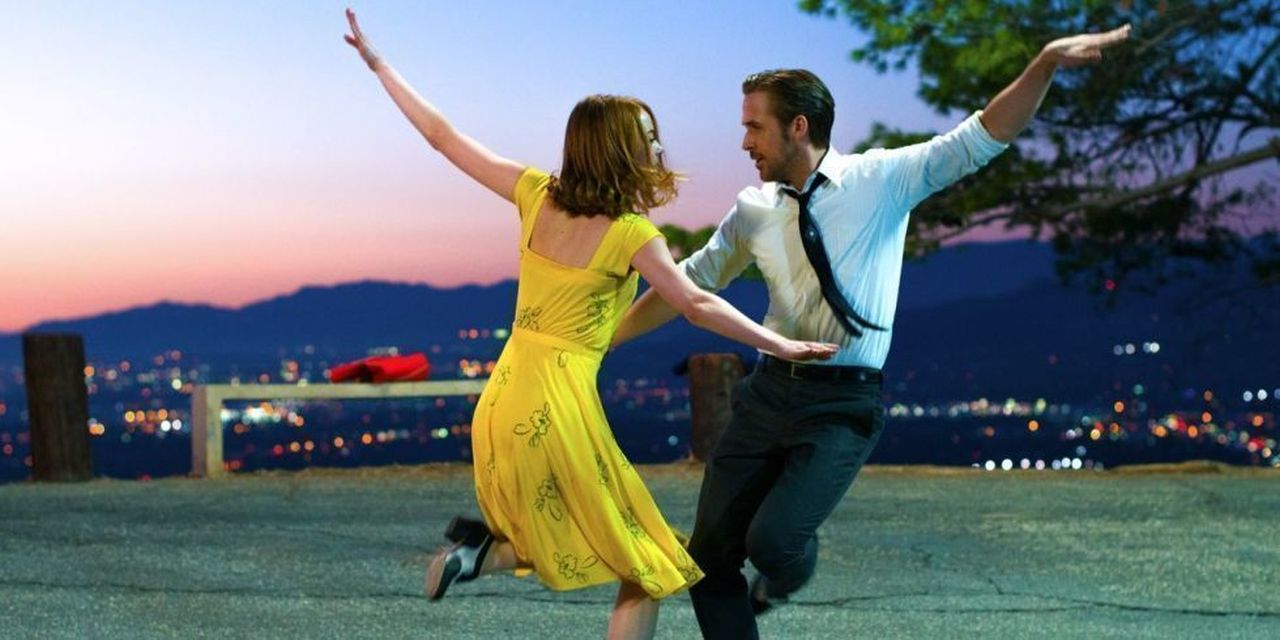
Photo: Lionsgate
On the complete opposite end of the spectrum is the candy-colored La La Land, a throwback song-and-dance movie that brims with earnest love for its characters and the city they inhabit. It checks every box in a location scout's dream: Griffith Park, the Colorado Street Bridge, the Watts Towers, the 105/110 freeway interchange heading away from LAX -- which fine, that actually sucks, but the traffic jam is accurate. The production even got Angels Flight, the funicular that Gosling and Stone's characters ride through downtown L.A., to reopen after being shuttered for years.
"I was living around the corner from Angels Flight for years and it just never ran because there wasn’t the funding for it to keep it running," Gosling told the Los Angeles Times. "It just seemed like such a shame to me, because it’s such a special part of its history. It’s great to be able to do a film and say, 'Hey, can we shoot on Angels Flight?' and suddenly they’ll open it up. This version of Los Angeles is not something we created, we just framed out the rest. But what’s there really is still there."
The Nice Guys (2016)
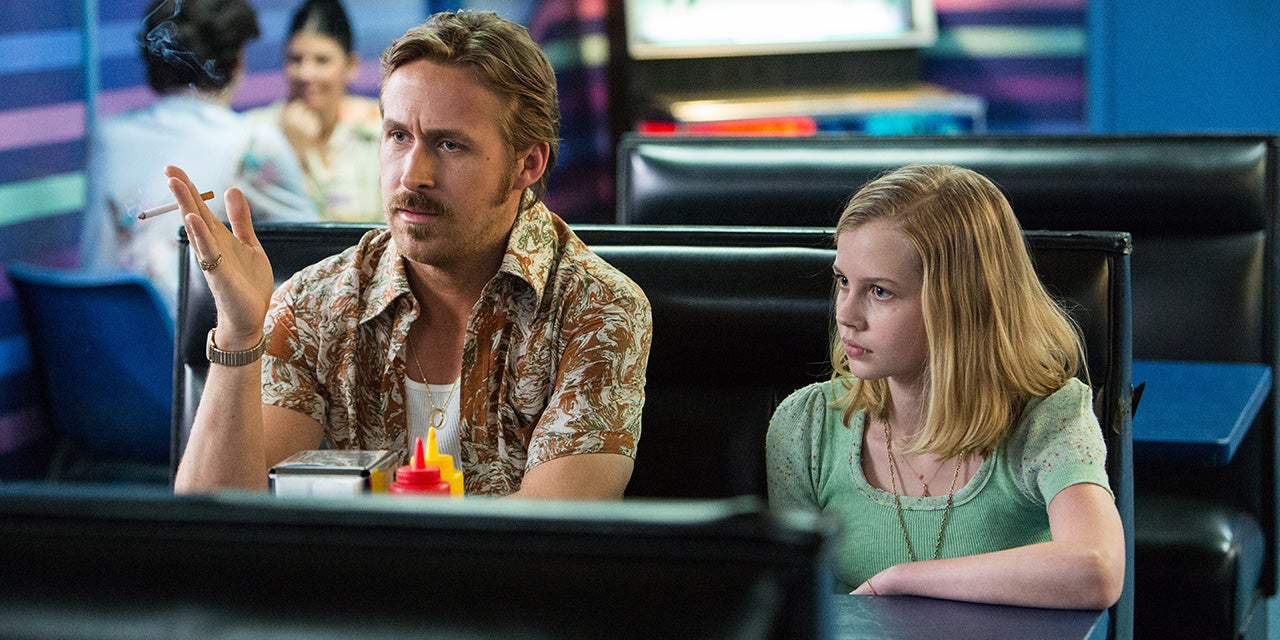
Photo: Warner Bros. Pictures
Aesthetically, the 1970s were a dire time -- so many sunshine-yellow kitchens, so many ill-cut suits in questionable colors. For whatever reason, Los Angeles seems to revel in the time period; the city will knock down gorgeous, historic 1920s buildings in the blink of an eye, but that 1978 Soviet-inspired mini-mall is entrenched, no questions asked.
The production designers of The Nice Guys have great fun with this, and Gosling's sly performance as a dumber-than-dumb flailing private eye who teams up with Russell Crowe on the ticky-tackiest parts of Hollywood Boulevard proves that absurdity will always have a place in Los Angeles. It's a chucklehead L.A. Confidential, but with Gosling and his, uh, enthusiastic mustache gleeful over his purchase of a new purple suit.
Gangster Squad (2013)
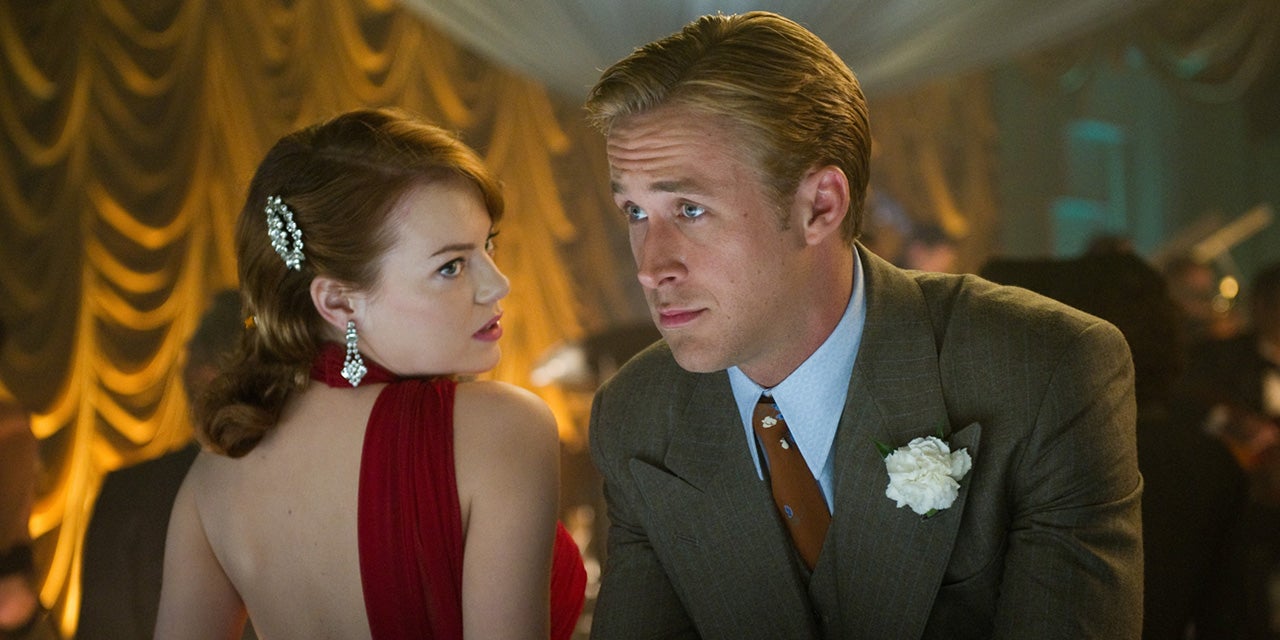
Photo: Warner Bros. Pictures
You want your Raymond Chandler, your Dashiell Hammett, your James M. Cain glamour noir version of Los Angeles? Gangster Squad is here for you. The contrast between L.A.'s perma-sun and its shadowy characters has long been irresistible; as Josh Brolin's character, Sgt. John O'Mara, says in the closing moments of the movie: "It's not paradise, but it's the City of Angels."
Gosling plays a good cop in a bad time, as Mickey Cohen -- played by Sean Penn, who thankfully leaves some scenery unchewed so we can enjoy some vintage Los Angeles locations -- is solidifying his mob base in the city. Eagle-eyed viewers will spot Union Station (1939), L.A. City Hall (1928), Clifton's Cafeteria (1935), the Park Plaza Hotel (1925) and the Tower Theatre (1927).
Crazy, Stupid, Love. (2011)
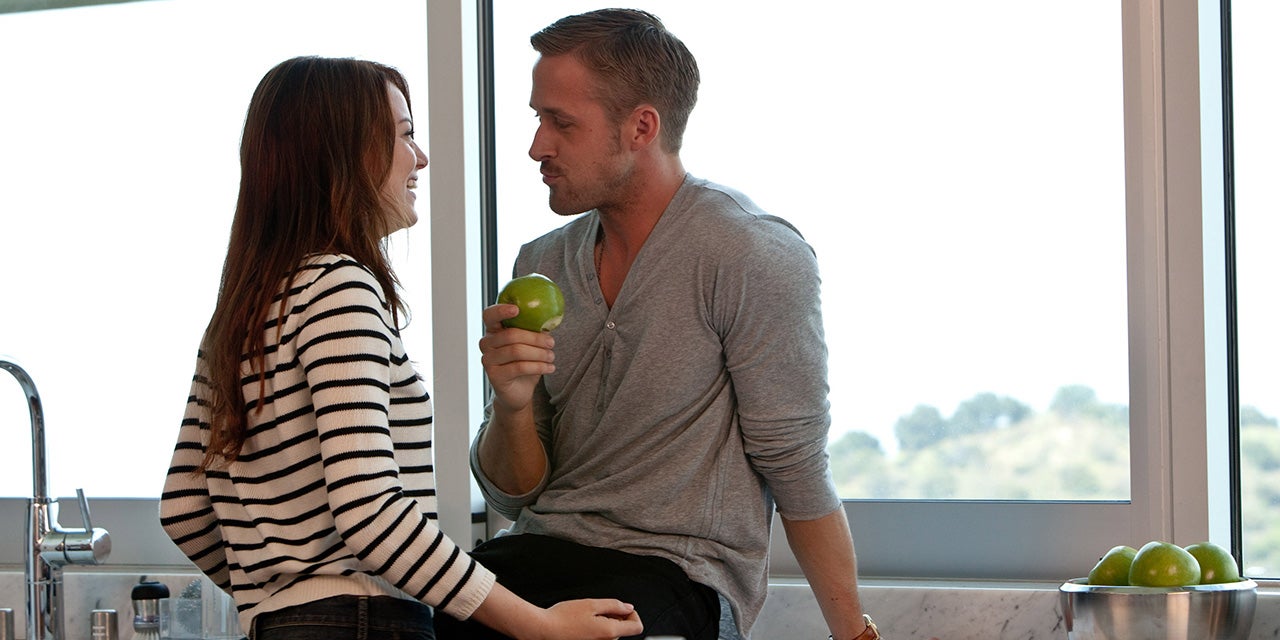
Photo: Warner Bros. Pictures
Besides the endless good weather, Los Angeles became the home of the movie industry because it's a city of neighborhoods, each with distinct characteristics that allow it to pass for somewhere entirely different. (I drive by the shooting location for Don Draper's Ossining, New York, home every day. The real-life owner is really into lawn decorations. It's a little jarring to think Mad Men's Betty Draper has such a dedication to seasonal displays.)
So while Crazy, Stupid, Love. has an Everytown, USA, feel to it and is a departure from the gritty allure of most of Gosling's other L.A. films, it is still definitely Los Angeles. It features three, count 'em, three, different malls. Gosling chucks Steve Carell's sad single dad sneakers off the top deck of the Westfield Century City Mall; one scene is at the now-defunct El Torito at the Sherman Oaks Galleria; and another takes place at the demolished Robinsons-May store in Beverly Hills. (Remember what I said earlier about tearing interesting buildings down and leaving mini-malls around here?)
Drive (2011)
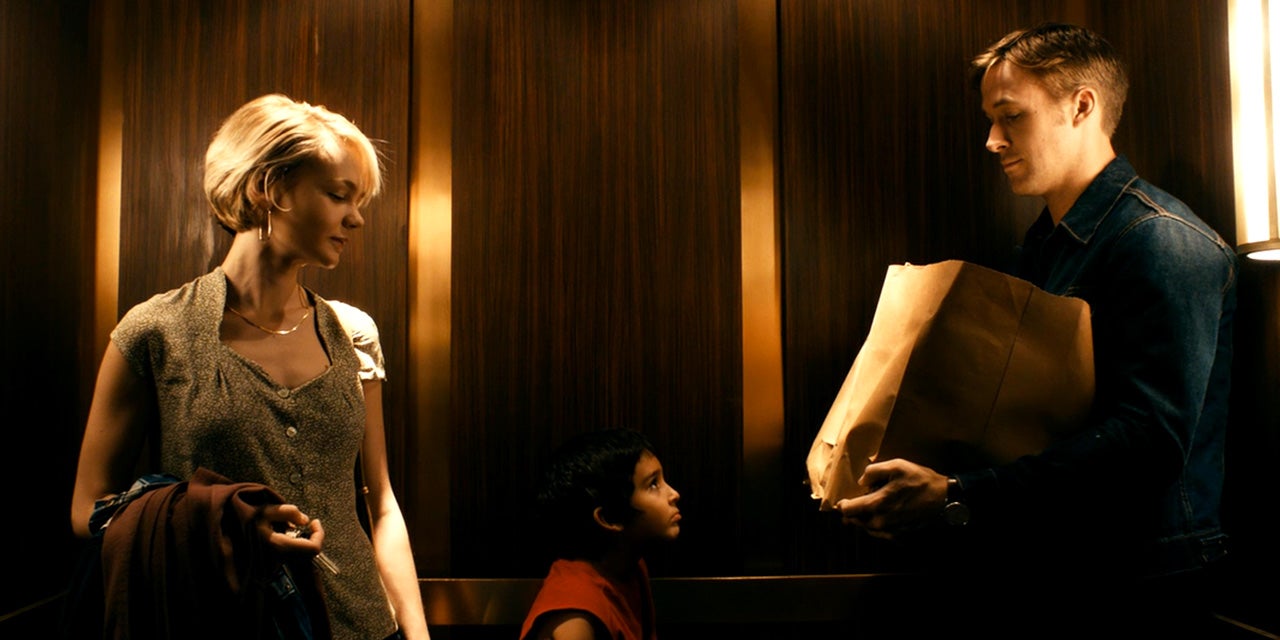
Photo: FilmDistrict
It's the movie that made downtown Los Angeles hip again -- even if, you know, the burned-in-your-retinas scene from it is someone getting beaten to death in an elevator. Gosling's Driver and Carey Mulligan's Irene live in the omnipresent Park Plaza Hotel -- see Gangster Squad and the original Blade Runner for other glimpses; Driver meets with Irene's husband in MacArthur Park, across the street from the Park Plaza; a chase scene goes past the Staples Center. (And for what it's worth, that elevator scene was filmed at the Los Angeles City Center Studios just off of the 110 freeway downtown.)
"I made 'Drive' at a period of time where I was living in downtown L.A. and I’d seen a whole side of it that I’d never seen before," Gosling told the Los Angeles Times. "I felt really lucky to be able to channel that into a film." According to an interview with NPR, director Nicolas Winding Refn and Gosling drove around the city together to develop the character and the look of the film. "I'm very much a fetish filmmaker in the sense that I just shoot what I would like to see," Refn said.
Fracture (2007)
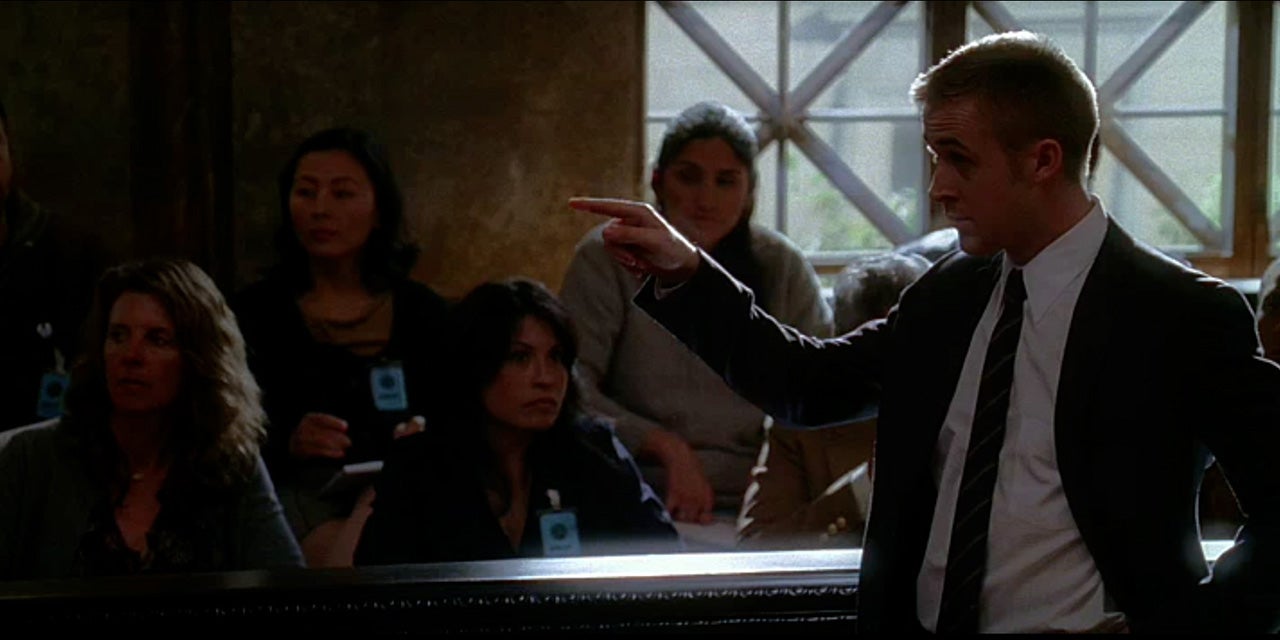
Photo: New Line Cinema
Fracture is full of twists and turns, and Gosling stars as an ambitious Los Angeles assistant district attorney trying to prosecute Anthony Hopkins' character, engineer Ted Crawford, who has committed the near-perfect crime.
This is a sinuous tale; the curves of the story are reflected in the cars speeding along winding canyon roads and in the undulations of the Walt Disney Concert Hall. This is the 1 percent of Los Angeles populated by posh cars on Pacific Coast Highway and big, boxy, antiseptic glass houses -- one of the cops describes the design of Crawford's home as "homicidal modern." (Ponder, if you will, that Gosling was nominated for a Teen Choice Award for this role...which makes no sense for an R-rated movie except for the fact that he looks about 15 in it.)

